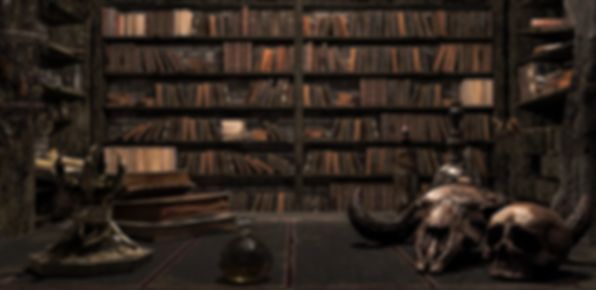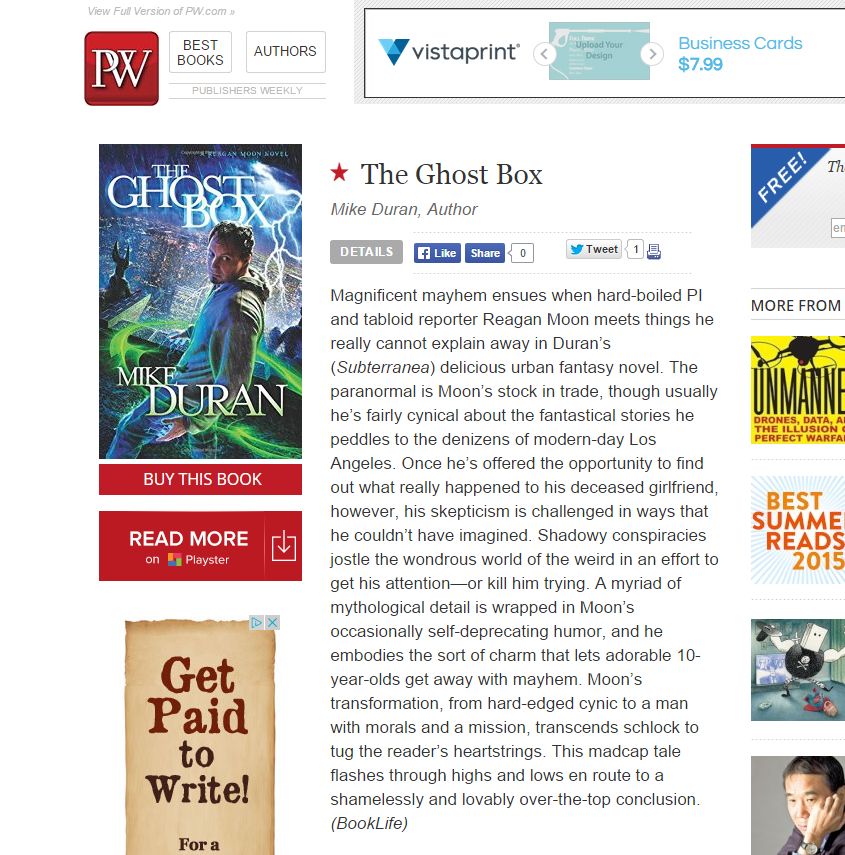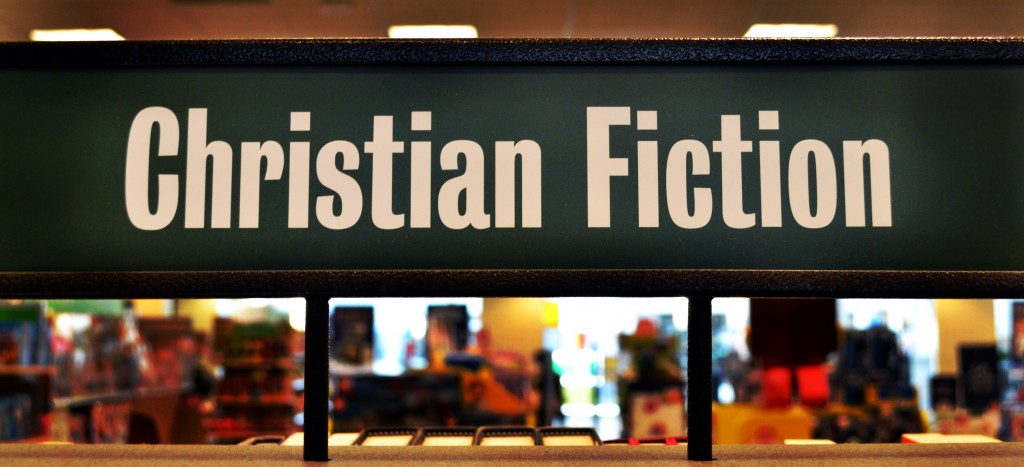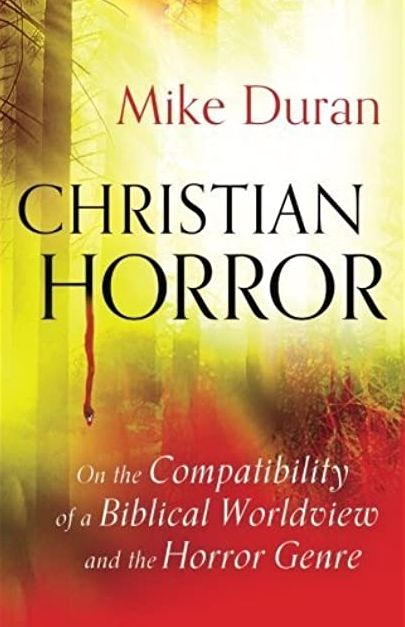
Over the years, I have received a good number of emails from new writers looking for publishing advice regarding their stories. Specifically ‘Christian Horror’ stories. This advice typically revolves around two questions:
- Should I publish traditionally or independently?
- Should I aim for the Christian market or the General market?
There are many Christian writers of horror and dark speculative stories who are more prolific and knowledgeable than myself, so these contacts are always a bit humbling. Nevertheless, I try to make it a habit to respond. Being that they come with a certain regularity, I finally concluded it was time to make a more detailed post that would cover those questions and serve as a template for future queries.
***
Navigating the publishing industry is certainly par for the course for any writer. But Christian writers often face a unique set of challenges. Not only must we manage the typical publishing questions about platforms, agents, marketing, etc., but we must resolve issues pertaining to our specific genre.
Let’s face it, the “Christian Horror” genre is a unique genre.
While all authors are faced with the option to self-publish, Christian authors must also consider whether to aim for an exclusively ‘Christian’ audience. The decision to publish in the Christian versus the general market is often determined by the content of your stories. However, the Christian who writes horror and darker subject matter faces unique challenges over-and-above the typical challenges faced by those writing traditional ‘Christian Fiction.’
I’ve written more extensively on the compatibility of Christianity and the horror genre HERE, HERE, and HERE. My assumption is that the Christian who writes horror has already wrestled with the theological issues behind that choice. Nevertheless, that author will still find that having an apologetic ready to answer critics and naysayers remains a necessity. This is one of several unique challenges for Christian horror authors. The remainder of this article proceeds under the assumption that the Christian novelist has resolved potential tensions between the horror genre and its compatibility with a biblical worldview.
The Christian who writes horror and darker subject matter faces unique challenges over-and-above the typical challenges faced by those writing traditional ‘Christian Fiction.’
There are many helpful websites and resources for authors. Two of my favorites are Author Media and Jane Friedman. But the choices are vast. Some of the advice that follows will echo what many publishing professionals have better articulated elsewhere. Likewise, this post is not for those looking for more technical discussions about craft, editing, and publishing. What follows is simply my personal publishing advice to Christian horror authors in their quest for publication.
There Is No One-Size Fits All Response
Perhaps the most common question asked by Christian horror authors is, Should I publish traditionally or independently?
There is much written for authors weighing the options of self-publishing. (See: HERE, HERE and HERE.) In many ways, indie publishing (a term used to describe “any type of publication process that doesn’t rely on a Big 5 publisher“) has been a godsend for Christians who write horror and speculative fiction. In my article, Christian Spec-Fic Titles are Multiplying Thanks to Indie Publishing, I concluded,
Faith-themed fiction titles are multiplying. And indie publishing has fueled that multiplication. The ability to now publish content that the mainstream [Christian] market won’t — whether it’s stories about vampires, vikings, space aliens, dragons, fairies, or ghosts — is playing a part in giving once-unnoticed stories/authors a platform and making Christian publishing “a bright spot” in the industry.
In that post, I recounted my own publishing arc, which may be helpful to those grappling with their publishing options.
My first-ever book contract was with Strang Communications back in 2011. (Strang later changed its name to Charisma House.) I received a two-book deal and an advance for stand-alone novels in the speculative genre (both horror / thriller). The circuit I’d taken to get to Strang was quite wide. My then-agent had shopped my first title, The Resurrection, throughout the Christian publishing industry. While it garnered some interest, the story never found a home, some of that due to its darker subject matter. With limited connections in the general market, my agent and I eventually agreed to part ways. It was a pretty low time in my career. Until I submitted to Strang, which accepted unagented manuscripts, and was offered a contract. (Such is the roller coaster of publishing.)
Indie publishing has been a godsend for Christians who write horror and speculative fiction.
However, with two books traditionally published in the Christian market, I was able to glimpse first-hand the limitations of horror-themed literature there. (I’ll expound on some of those tensions below.) Suffice to say, I was uncomfortable with the echo-chamber the Christian market was becoming. Furthermore, the strictures often associated with the genre — “clean” and “inspirational” stories, no profanity, overt Christian messaging, avoiding darker symbolism and subject matter, etc. — were not conducive to the types of stories and audience I envisioned. At that time, self-publishing technology was rapidly advancing. More and more authors were dropping their agents and opting out of the traditional publishing model. Likewise, the stigma that was long-attached to self-publishing began to fade. Professionally edited books with high-quality art were being published independently.

My first foray into indie publishing struck gold when The Ghost Box, first book in my Reagan Moon urban fantasy series, received a starred review from Publishers Weekly and was listed as one of the best indie titles of 2015. While there are many “Christian” elements to the story — including the lead character having a guardian angel and a cross fused into his sternum — the story is not overtly “Christian.” It contains PG-13 level profanity and occult elements that would be disallowed in the Christian market. In fact, I specifically avoided labeling the book “Christian” in order to reach a different audience and shake being seen as a “Christian fiction” writer.
Clearly, my choice to publish independently worked. However, it was not without cost — both financially and audience-wise.
The author who chooses to publish independently must be prepared to invest significant amounts of time and money into their projects. From cover art, to editing, to advertising, the indie author must be willing to absorb the costs traditionally assumed by the publisher. For example, I invested a minimum of $2,500 into The Ghost Box (cover art, professional editing, ebook formatting, audiobook production, etc.). This did not include purchasing hard copies of the book, bookmarks, promotional materials, etc., etc. While not all of my indie books have been nearly that costly, the self-publishing route requires the author to bear the cost for his or her product. Of course, the upside for the indie author is not just total creative control, but a significantly higher percentage of royalties (typically 70% range, as opposed to 10-15% for trad) as well as retaining the publishing rights to your book.
Conversely, there are various reasons why authors choose the traditional publishing route. One is having industry professionals attached to your project. Not having to invest in cover art, editing, or printing is a huge relief for many authors. Also, being published traditionally can provide the author a wider birth of distribution. Many indie authors struggle to get their books into actual bookstores. For example, my local Barnes & Noble carries my first two trad published books, but refuses to carry my indie books (per a company-wide policy regarding self-pubbed books). Nevertheless, both the trad published and indie published author must work to market their material. Some are under the impression that trad publishers assume all the marketing for your book. This is not true. In fact, many such publishers will not take on authors who do not already have sizeable platforms. Another downside to traditional publishing is adherence to the publisher’s guidelines and correctives. Many authors’ joy at being picked up by a trad publisher is tempered by a publisher’s request to alter a story or character in ways that water-down an author’s creative intent.
So when it comes to the decision between traditional or indie publishing, there is no one-size-fits-all answer. The author must answer numerous questions. How big is your existing platform? How active are you on social media? How large is your professional circle? Do you have established authors who can endorse and/or guide you? Are you able to absorb the costs of self-publishing? Does your genre fit with current market trends? Is your story more niche than mainstream? How able and willing are you to market yourself and your books? Are you willing to wait — often years! — to solicit agents and publishers? Are you willing to release creative control of your books over to others?
These are just a few of the questions facing an author. And while the indie publishing option is not unique to Christian horror authors, it does often uniquely influence their decisions.
The Christian Market vs. the General Market
For many Christian horror writers, the choice to publish independently is directly tied to the makeup of the traditional Christian market.

Of the 19 Top Christian Fiction Publishers, only a small percentage of novels could be labeled as “horror.” In fact, in my book Christian Horror: On the Compatibility of a Biblical Worldview and the Horror Genre, I cite a publishing insider who admitted that Christian publishers specifically avoid the term “horror.” Even though they may acquire stories that fit in that genre, they will substitute labels like “suspense,” “thriller,” or “chiller.” This aversion to the term — and the genre! — of “horror” by Christian publishers is a troublesome reality for many Christian horror authors.
The Christian fiction market comprises a rather narrow subset of the publishing field. While Christian publishing (this includes non-fic titles) continues to maintain a relatively strong niche, Christian fiction is another animal entirely. The industry is dominated by Women’s Fiction, Historical Romance, Prairie Romance, Cozy Mystery, and Christian Suspense. Inspirational fiction is the norm (meaning stories with a positive, redemptive, edifying message). Not only is its demographic reach quite narrow (predominantly white, middle-aged, evangelical women), but its content guidelines are exceptionally strict.
I experienced this first-hand with my early “Christian” publications. Not only did I receive pushback from Christian reviewers who felt my content was too dark, especially as I employed occult symbols and references, but my publisher required me to nix certain language. This often led to humorous discussions. (For instance, the word “crap” was tolerable because the word is derived from a real person, a plumber who was integral in the development of the flush toilet named Thomas Crapper. Then there was inclusion of the word “flippin’.” Even though both “flippin’” and “friggin’” are substitutes for the F-word, “friggin’” sounds closer to the actual word, so is not allowable. Nevertheless, the publisher forbade me from using the phrase “go to hell,” even though it was directed at a spirit.) Such are the decisions faced by trad-published authors.
This also extends to speculative and horror content. Early in my career as a writer, I pitched a “Christian vampire” novel. At the time, the Twilight Saga was all the rage, so my story garnered some interest among publishers. The protagonist would be a believer who’d learned (via faith and science) to transcend his urges, subsequently gathering around himself night creatures who also sought to pursue good. However, the more I floated the idea, the more pushback I received from some Christian readers. Vampires can’t be good, they objected. The historical archetype should be maintained.
From dragons to vampires to zombies to ghosts, horror authors will find common tropes often anathematized in Christian fiction circles.
The longer I interacted with Christian writers and readers, the more I learned that certain tropes, characters, archetypes, and myths are off-limits to many Christian authors. For instance, debates about the use of magic in one’s stories, occult symbolism, and spell-casting are typically lively among believers. Some ask, Can Christian Writers Include Magic in their Fantasy Novels? Others ask Is it Okay For Christians to Tell Ghost Stories? Some have even argued that zombies should be off-limits in Christian fiction. From dragons to vampires to zombies to ghosts, horror authors will find common tropes often anathematized in Christian fiction circles.
When deciding between markets, the Christian horror writer must consider the strictures and/or creative freedom each market allows. The author whose religious content is explicit, and who has no qualms complying with the traditional content norms, should consider aiming for the Christian market. Conversely, the author who writes grittier, darker fare that contains language and/or doesn’t fit neatly into a “Christian” box should consider aiming for the general market.

In my interview with Jason Sizemore, founder of Apex Publications, I asked him what advice he’d give to Christian authors who enjoy speculative stuff but struggle with the “ultra-conservative strictures” of the current Christian market. He answered,
My suggestion to the writers who frequent your site is to repackage their work. Don’t market it as faith-based. Use words paranormal fantasy and religious horror. Describe it as having a bit of an edge. That should boost you out of the ultra-conservative gutter.
Please note: Jason’s advice was not to strip the story of religious elements but to “repackage” it. This distinction is important and points to a fundamental struggle for the Christian horrorist: The issue is the market, not religious content.
And this issue of content is perhaps the most important factor in deciding between markets. In my post, Why I Decided to Write for the General Market, I listed several different reasons for my decision to leave the Christian market in favor of the general market. I concluded:
I want to write stories that contain spiritual themes and religious content but remain free to noodle around with weird science, un-orthodox ideas, unholy characters, who sometimes think bad thoughts and use bad language.
And that’s pretty much my bottom line. While I’m a Christian, write from a Christian worldview, and riddle my stories with religious themes, I also like to explore characters and themes that do not fit comfortably within the traditional Christian market.
Be Prepared for Pushback and Misunderstanding from Both Sides
It is not uncommon for Christian horror authors to receive pushback and critique from both sides of the aisle — secular readers who object to a story’s religious content and Christians who object to a story’s ‘secular’ content. In this sense, the Christian horror author must be prepared to get hit from both sides.
It is not uncommon for Christian horror authors to receive pushback and critique from both sides of the aisle — secular readers who object to a story’s religious content and Christians who object to a story’s ‘secular’ content.
For example, I recently received a one-star rating for my book The Ghost Box on Amazon. The title of the reader’s review was “Christian book with foul language to boot.” The reviewer writes:
I give it a one star because well for a so called Christian book it has the worst language ever. I mean really this book could have been written by any secular author out there and you wouldn’t be able to tell the difference. I really don’t know the reason for the foul language it’s not like it was needed and it didn’t add anything to the book.
Perhaps the most interesting thing about this review is the attribution of “Christian book” to The Ghost Box. Nowhere have I labeled the book as “Christian fiction.” Nor do I consider it such. Which leaves me to wonder why the author concludes this. Most likely, my canon betrays my worldview. With two books published in the Christian Fiction market, a book entitled “Christian Horror,” and a spiritual memoir recounting my conversion to Christianity and my time in the ministry, such conclusions are inevitable. Likewise, social media breadcrumbs may inevitably divulge an author’s religious worldview, exposing their stories to unexpected critique. God forbid readers discover an author is a Christian, a Republican, a homeschooler, or a conspiracy theorist!
Conversely, the Christian author publishing in the general market must also face the possibility of religious objections to their stories. Again, an example from my own experience. This Amazon reviewer named Hannah, objected to my novella Wickers Bog: A Tale of Southern Gothic Horror on my portrayal of religion, specifically that I was too “pushy.” She writes,
With frequent mentions of God and a big emphasis on fate, I had a hard time not feeling like this story was pushy. That said, it’s a common thing in southern gothic. Religion has a strong grip on the south, both its characters and its writers. I’m not exactly surprised, but the methods used here irritated me. Again, it’s difficult to explain in-depth without spoiling the story, but the main character’s ending thoughts had me rolling my eyes. If you’re like me and came from an abusive religious background, you might want to skip this one.
I don’t want to seem excessively harsh just because the story has a Christian slant. There is a lot of good here. The writing is solid, the imagery is nice, and the climax is pretty thrilling. I think the author is an excellent writer, and some of the problems vanish if you read this as a ghost story, not as a mystery. The imagery took me right back to my childhood, and if you love a good spooky tale, this could be a quick fix. However, the twist is weak, and the religious themes become increasingly heavy-handed towards the end. If the book became as pushy about Christianity earlier on as it became by the end, I would not have finished it.
All in all, the review is mostly fair. Yet despite the “solid” writing and a “thrilling” climax, Hannah only gives Wickers Bog two stars (out of five). Apparently, the religious themes are so “heavy-handed” that someone who came from “an abusive religious background” should consider avoiding the book.
Critique is par for the course for novelists. The writer who is overly sensitive to bad reviews might reconsider a career in writing. This is especially true for the Christian horror novelist. For not only must they be prepared for Christian readers to find their stories not “Christian” enough, they must anticipate other readers finding their stories “too Christian.” Some of that critique may be fair. Some might not. Nevertheless, the Christian horror writer must be prepared for pushback from both sides.
***
Of course, there are many more questions and issues for the aspiring Christian horror novelist to grapple with. Hopefully, this post can serve as a helpful introduction for some.
The real divide in the “Christian horror” debate is not between whether the horror genre is compatible with Christian fiction, but whether Christian horror is compatible with the current religious market. Again, the Christian horror writer should be resolved about the theological tensions before they can effectively grapple with the market demands. My hope is that some of my advice and experience can help other aspiring horror authors to prayerfully navigate the complexities of both their calling and the publishing world.















Thanks for posting this. It’s definitely something I wrestle with. With that said, what would you say about the use of pseudonyms? I’ve debated using my real name to write for the more Christian side of the aisle, and a pseudonym for when I want to go a little grittier. Any thoughts on this?
Definitely an option. I know several authors who use a pen name, mainly because they’re wanting to publish in a genre significantly different from their existing brand. This works well when an author has an established platform and doesn’t want to risk alienating them. For example, an author who’s established themselves as a Cozy Mystery writer wants to write a Dark Fantasy series. Publishing pseudonymously might prevent them from losing Cozy fans (who misunderstand the darker elements of their new stories) or assist them in appealing to potential Dark Fantasy fans (who see Cozies as literary fluff). Anyway, I think it could also work well on either side of the Christian/secular aisle.
Thanks so much for posting this Mike. As always, your insight on the state of the genre and the challenges for writers is extremely valuable and logically sound. Since Christian horror and speculative fiction gets lumped into “Christian fantasy” on Amazon, your post prompted Amazon chart research.
Amazon> Books>Christian books and Bibles> literature & fiction> fantasy. (Amazon charts change every hour but this was a pretty consistent average over a few days) In the top 50 books in Christian fantasy:
37 of the top 50 are Kindle unlimited.
1 hardback (Pilgrim’s progress) and 4 paperbacks (2 were 2022, 2 were Pilgrim’s progress).
35 of 37 Kindle Unlimited are self-published.
3 of 6 audiobooks are self-published.
7 of the top 10 are self-published.
14 of the top 20 are self-published.
Publishers only had 15 books/audiobooks in the Top 50.
Surprisingly (to me), 2 books in top 50 were Christian werewolf /shape shifter.
The only publisher book in the top 10 was Ted Dekker Circle collection audiobook. Only two books by publishers in Top 20 (both new 2022). Only two audiobooks by publishers in the top 20 (audiobooks were Ted Dekker and Frank Peretti, both are older books).
Mike, I’m new to this market so I’m thinking out loud here, but these latest Amazon numbers seem to indicate:
Scenario (A): Does the absence of big publishers cracking the top 50 mean there either aren’t a lot of sales in Christian fantasy and/or publishers don’t see enough money in the genre so they don’t promote and/or sign many of those books? Or…
Scenario (B): Have Christian fantasy writers found they don’t need publishers to succeed in this genre and are beating the major publishers?
Mike, thanks for taking the time to share your experiences and write this comprehensive post. You clarified many of the key issues for me, especially around target audience and creative ownership. I appreciate your honesty that here are financial and other costs to independent publishing. But the benefits outweigh them for me, at the moment anyway. My own experience is of going with a tradition publisher who failed in basic proofreading tasks and designed a cover that was cringeworthy. I’d rather keep these under my own power in the future. Also, I find the language and other restrains in Christian publishing so severe that they limit the impact of the story. Stories with ‘religious’ content will end up offending both sides, so you might as tell it how you want to and see what happens!